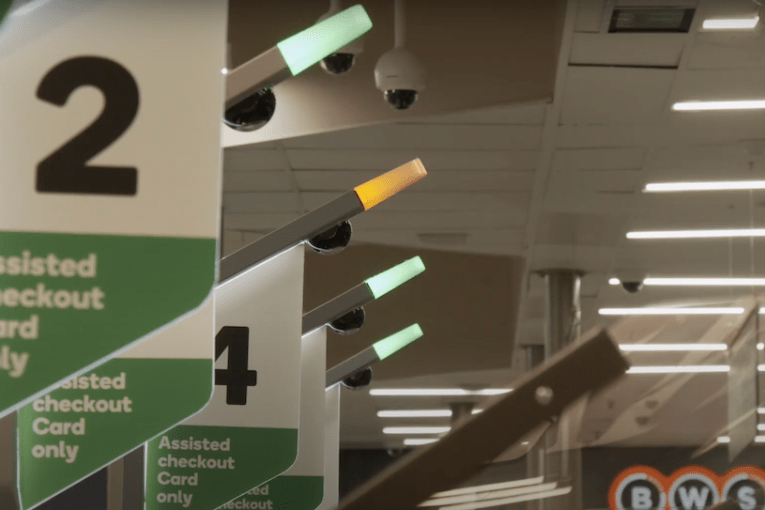Australian intelligence agencies investigate Chinese-owned TikTok over security concerns
TikTok is facing intensifying scrutiny in Canberra, with intelligence agencies putting the app under the microscope and some MPs pressing the Federal Government to ban it.
US President Donald Trump has also indicated he’s on the brink of banning the video sharing app in the United States, which will likely to bolster calls for Australia to follow suit.
The video-sharing app is enormously popular with young people in their teens and 20s, with more than 1.5 million Australians downloading it to their phones.
But analysts say TikTok harvests huge amounts of data, and warn that the Chinese company which owns it — ByteDance — may be forced to share that information with the Chinese Government.
Last month, Prime Minister Scott Morrison declared the Federal Government was looking “very closely” at TikTok.
“If we consider there is a need to take further action than we are taking now, then I can tell you we won’t be shy about it,” he said.
The ABC has been told that the Federal Government is conducting two complementary investigations into the app.
The Prime Minister has directed intelligence agencies to investigate whether TikTok poses a security threat.
Simultaneously, the Department of Home Affairs is investigating what steps the Government can take to manage any privacy or data security risks it poses.
Home Affairs is also scrutinising the hugely popular Chinese social media app WeChat, which is used by more than 2 million Australians.
TikTok says it will not share data with Beijing

TikTok has more than 800 million global users
TikTok Australia stores user data in the US and Singapore, and the company insists TikTok users do not have to worry about their personal information being compromised.
In a statement, it said: “TikTok does not share information of our users in Australia with any foreign government, including the Chinese Government, and would not do so if asked.”
But some Federal MPs say they are sceptical of that claim, pointing out that Chinese law specifically requires companies to hand over information to the authorities if it is requested.
The ABC has spoken to several parliamentarians who have been privately voicing concerns about TikTok.
Federal Labor MP Anthony Byrne, who is deputy chair of the Joint Parliamentary Committee on Intelligence and Security, has been advocating that TikTok be banned as a retaliatory action if the Chinese Government continues to engage in cyber attacks or economic coercion against Australia.
Other parliamentarians have hesitated about pressing for a ban but say TikTok needs to face greater scrutiny.
Australia will not automatically follow the lead of the United States if the Trump administration does decide to ban the app.
But a US ban would help build momentum for those pressing for drastic action.
The Indian Government’s decision to ban TikTok there has also shifted the calculus in Canberra.
TikTok has been lobbying Federal MPs against a ban, suggesting it has been unfairly caught up in escalating geopolitical tensions between China and Western nations.
“We have no interest in being a political football when it comes to global geopolitical issues,” the company said in a statement.
“We welcome ongoing discussions with government audiences as we work to remain a safe, fun and creative platform for people to express themselves.”
Social media to front inquiry into interference
This month, representatives from TikTok Australia will also front a parliamentary committee that is investigating the threat of foreign interference through social media.
The committee is being chaired by Labor Senator Jenny McAllister, who said there were credible reports TikTok took more data than its users realised.
“I’d like TikTok to explain the way that they protect the privacy of users of their data, and I’d also like them to explain how it is that they moderate content,” she told the ABC.
But she said it was premature to call for a ban on TikTok at this stage.
“I think the task of the committee is to try and describe the nature of the problem. If you’ve got a good handle on the problem, then you can develop solutions — but we’re not there yet,” she said.
“I think the most likely outcome is there is no one single solution … that’s likely to provide a complete answer.”
It’s not just TikTok facing scrutiny: representatives from Google, Facebook, Twitter and WeChat have also been called to give evidence at the committee.
Jenny McAllister said it would be “naïve” to imagine that Australia would be immune from social media disinformation campaigns that have already marred some elections overseas.
She said the committee would press the social media giants to explain what steps they were taking to disrupt foreign interference.
“What kind of content do they promote and what kind of content do they try and hide? And what point do they intervene if they suspect there is coordinated activity online seeking to disrupt or degrade Australian politics?” she said.
“I think we need significantly greater transparency from these platforms.”








